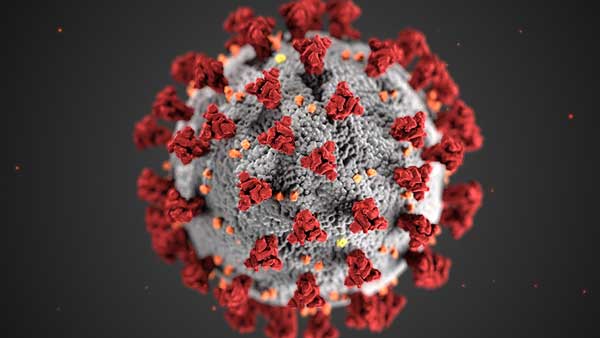
ANALYSING 2020: SIX CRITICAL LESSONS FROM A TUMULTOUS YEAR
As one bids goodbye to an unusually challenging year, one awaits the New Year with mixed emotions. A die-hard optimist would assert that any year would be better than 2020! The hesitant pessimist would err on the side of extreme caution and wonder whether the worst is actually over! On this last day of 2020 how does one reflect on the 365 days that have gone by? Incidentally, this was a leap year! Did we witness a leap of faith and hope or despair and despondency or resolve and resilience or a combination of them all? From the lens of politics and political activity, the year gone by had six important takeaways.

Firstly, the pandemic and the year that we wish adieu to have taught us the importance of preparedness and a proactive approach. Managing crisis situations is about a sense of anticipation.
Getting a nation and its people ready for a lockdown is about carefully foreseeing likely developments and having a strategy ready to deal with the same. It is both about rolling out an immediate line of action as well as contextualizing that action to a long term vision and policy. Gearing up for a lockdown at the nation level, in every state and at the local area required careful orchestration and coordination of actions. It was clear that the announcement of a decision needed to be preceded by a well laid out approach anticipating possible consequences of the action being taken.

One noticed how the compulsions of coordination between different levels of government were ever so critical for the smooth flow of actions to deal with the crisis brought by the pandemic. One also noticed that the realities of political competition derailed effective coordination. Crisis management is not about a blame-game but about successful behind-the-scene efforts at ensuring delivery of essential services and relief. The challenges faced by the migrant labour were a consequence of the absence of planning, coordination and anticipation by the different stake-holders who needed to be alert and proactive of the impending challenges.
Secondly, the pandemic has brought alive the role that the state and its attendant agencies are required to play to ensure that public welfare is accorded a high priority. There were those who argued that with liberalization and privatization, the state is increasingly a regulator and a facilitator not a provider. The pandemic and its consequences have once again provided proof for those who still needed it that for large segments of Indian society the state remained the sole provider and not merely a regulator and a facilitator. It has become imperative for the state to draw out a feasible and practical strategy to provide relief and support to those sections of society who were increasingly dependent on it for their survival and the fulfillment of basic needs.
A survey coordinated by Lokniti-CSDS indicated that during the first phase of the lockdown, for eight out of every ten people, life came to a complete or near complete standstill. If one-thirds of the respondents said that they faced extreme difficulty in fulfilling their basic needs during the pandemic another four of every ten, reported facing quite some difficulty ensuring that the basic needs of their family were met during the initial lockdown.
Thirdly, the pandemic has brought into focus the fact that different segments of society anticipate the state and its machinery to respond to their diverse and very distinct needs. While some required emergency relief measures, others were looking for short and medium term concessions and yet others felt the urgent need for sector-specific stimulus packages. The challenge before the state is how best to cater to these multi-track segments of society.

A strategy of prioritizing responses became vital. More importantly, while a slew of diverse measures were announced it was often felt that the actual benefit did not reach the intended beneficiaries in the manner anticipated. Thus, at one level there was an expectation overload and this was met by a performance deficit. This deficit could well have been a by-product of an unrealistic overload of expectations. It also could have been caused by the assurances given by the state and its response not matching the needs of the people.
Fourthly, the role of community networks came to the fore during this crisis. The media has focused on the many success stories of local communities organizing support for those in need of help. One had hoped for such narratives to be more widespread. One has also read of anecdotes and watched on electronic media, depressing stories of people and segments of society left to fend for themselves.
The challenges faced by the migrant labour and the long distances that they had to traverse raise questions on the role of both the state and those who had employed them in the pre-pandemic days.
The Lokniti-CSDS surveys during the lockdown indicated a significant fall in household monthly incomes. If in the pre-pandemic days there was a more or less equal division across three household monthly income categories (less than 5000, 5001-10000 and more than 10,000), during the pandemic close to seven of every ten reported that the monthly family household income was in the less than5000 level. The strongest hit have been the poorer sections of society and the safety net they were looking for from their employers and the state seemed to be missing.
Fifthly, pandemics entail a greater level of accountability by those who exercise power at all levels. What one has noticed that in the times of the pandemic, the environment of uncertainty and the fact of a crisis have been leveraged by the wielders of power to initiate unilateral changes. One is not merely referring here to the sphere of politics and government but across the board in society.
Changes in the form of salary cuts, retrenchment, changes in the work environment, curtailment of civil liberties have often been ushered in during the shadow of the pandemic, with very little public dialogue and non-reversal of trends with a gradual easing of the lockdown and the crisis.
Finally, the pandemic had provided categorical proof of the resilience of the people in the face of a crisis. For me, the real proof of an Atma-Nirbhar Bharat, was seen in this resilience of the common person. The cynic could opine that we as a people have been used to moving from one crisis to another.

Yet, the way in which society has responded was demonstrative of the resilience of the people. They continued to express hope in the government of the day (both at the national and state level) as is evidenced in the data from the Lokniti-CSDS studies. Close to three of every four respondents were satisfied with the response of the state. This could well be an expression of an anticipation of a positive response from the state. The continued hope of a democratic dividend is patently visible . This spirit of resilience is truly the hope for a better 2021!
(Dr Sandeep Shastri is a keen student of politics and scheduled is to take over as the Vice Chancellor of Jagran Lakecity University at Bhopal in January 2021)


 Click it and Unblock the Notifications
Click it and Unblock the Notifications


































